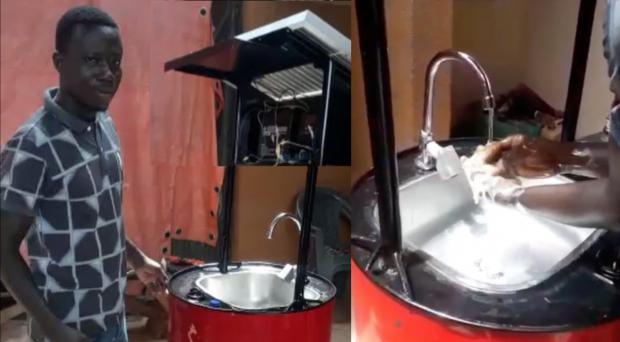
Breaking News
 Harbor Freight Coverpro 12x20 made into a Metal Building part 2
Harbor Freight Coverpro 12x20 made into a Metal Building part 2
 Brian Cole BUSTED, Halle Berry NUKES Newsom + Candace REJECTS TPUSA Challenge...
Brian Cole BUSTED, Halle Berry NUKES Newsom + Candace REJECTS TPUSA Challenge...
 I spent my Thanksgiving in the emergency rom... Medical emergencies can pop up at any time.
I spent my Thanksgiving in the emergency rom... Medical emergencies can pop up at any time.
 The "Golden Age" of Job Layoffs?
The "Golden Age" of Job Layoffs?
Top Tech News
 Build a Greenhouse HEATER that Lasts 10-15 DAYS!
Build a Greenhouse HEATER that Lasts 10-15 DAYS!
 Look at the genius idea he came up with using this tank that nobody wanted
Look at the genius idea he came up with using this tank that nobody wanted
 Latest Comet 3I Atlas Anomolies Like the Impossible 600,000 Mile Long Sunward Tail
Latest Comet 3I Atlas Anomolies Like the Impossible 600,000 Mile Long Sunward Tail
 Tesla Just Opened Its Biggest Supercharger Station Ever--And It's Powered By Solar And Batteries
Tesla Just Opened Its Biggest Supercharger Station Ever--And It's Powered By Solar And Batteries
 Your body already knows how to regrow limbs. We just haven't figured out how to turn it on yet.
Your body already knows how to regrow limbs. We just haven't figured out how to turn it on yet.
 We've wiretapped the gut-brain hotline to decode signals driving disease
We've wiretapped the gut-brain hotline to decode signals driving disease
 3D-printable concrete alternative hardens in three days, not four weeks
3D-printable concrete alternative hardens in three days, not four weeks
 Could satellite-beaming planes and airships make SpaceX's Starlink obsolete?
Could satellite-beaming planes and airships make SpaceX's Starlink obsolete?
During Lockdown a Ghanaian Shoemaker Invented a Solar-Powered Hand-washing...

Ghana, a country the size of Utah but with 31 million inhabitants, is benefitting from good old-fashion ingenuity in its fight against COVID-19.
In Kumasi, the cultural capital of the country located in the Ashanti region, a 2-week lockdown to control the spread inspired a man to a wonderful invention.
In less than 48 hours, 32-year old shoemaker Richard Kwarteng and his brother Jude Osei managed to gather all the necessary supplies to turn an old recycled metal barrel into a solar-powered hand-washing basin to encourage sanitation habits among the neighborhood.
Set to run on a 25-second timer, in correspondence with the CDC guidelines for handwashing duration, it would need not only elements of plumbing, but also electrical engineering like sensors, alarms, and a motherboard, yet be able to work like a normal hands-free sink.
Fortunately the street markets of Ghanaian cities carry every component under the sun, and with the help of a friend who worked as an electrician and was able to handle the computer element, Kwarteng finished his invention in just five days.
Osei recorded a video of Kwarteng demonstrating how to use the device and posted it on social media. It immediately went viral. "It was amazing to see the shares and likes," Kwarteng told CNN. "We started getting calls left and right. We were so proud of ourselves," he added.

 First totally synthetic human brain model has been realized
First totally synthetic human brain model has been realized Mach-23 potato gun to shoot satellites into space
Mach-23 potato gun to shoot satellites into space

